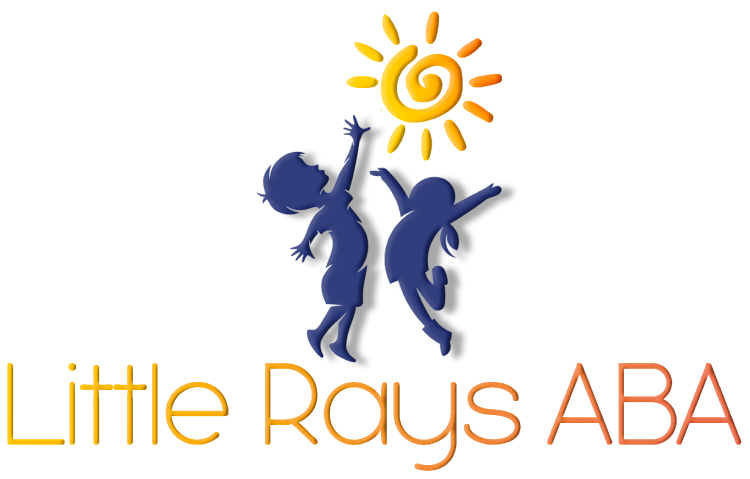Fun and Stimulating Activities for Autistic Teenagers
Supporting the development and well-being of teenagers with autism spectrum disorder (ASD) often involves finding activities that cater to their unique needs and interests. These activities should provide a balance of sensory stimulation, opportunities to enhance social skills, and avenues for communication and language development, ultimately enabling them to lead a comfortable life. This blog post will explore a range of engaging activities that can be adapted for autistic teenagers, creating enjoyable experiences that support their growth.
Engaging and Enjoyable Activities for Autistic Teenagers
Finding activities that resonate with an autistic teenager's interests and sensory needs can be a rewarding experience for both the teen and their family. These fun activities can range from individual pursuits that provide calming sensory input to group activities that encourage social interaction and communication.
The following sections will explore a wide array of activities that can be adapted to suit different interests and abilities, ensuring that there's something for every autistic teenager to enjoy.
1. Interactive storytelling sessions
Interactive storytelling sessions provide a fun and engaging way for autistic teenagers to develop their language skills, improve social interaction, and bolster cognitive abilities. By participating in group storytelling, teens can practice turn-taking, build their vocabulary, and explore social cues through narrative.
Encourage teens to contribute their own ideas, characters, and plot twists to the story, fostering their creativity and imagination. Visual aids, such as storyboards or picture cards, can be incorporated to support understanding and engagement.
2. Puzzle solving challenges
Engaging in puzzle-solving challenges offers autistic teenagers a stimulating way to enhance their cognitive skills, problem-solving abilities, and fine motor skills. Puzzles, such as jigsaw puzzles, logic puzzles, or even escape rooms, encourage critical thinking, spatial reasoning, and attention to detail.
These activities provide a sense of accomplishment upon completion and can be enjoyed individually or in a group setting. When selecting puzzles, consider the teen's interests and adjust the complexity level to match their abilities.
3. Gardening projects
Participating in gardening projects allows autistic teenagers to connect with nature while engaging in sensory stimulation and practicing their motor skills. The process of planting seeds, watering plants, and harvesting produce provides a variety of sensory experiences, from the feel of soil to the scents of herbs and flowers.
Gardening also fosters environmental awareness and promotes a sense of responsibility. Encourage teens to choose plants they find interesting and involve them in every step of the process.
4. Music therapy sessions
Music therapy provides a unique avenue for autistic teenagers to explore their emotions, improve sensory integration, and develop self-expression through playing musical instruments. Music has a profound impact on the brain, and music therapy sessions, guided by a trained therapist, can help teens regulate their emotions, improve communication, and enhance social skills.
Instruments, singing, and songwriting can be incorporated into these sessions, allowing teens to explore different rhythms, melodies, and sensory experiences.
5. Art and craft creation
Engaging in art therapy and craft activities gives autistic teenagers an outlet for their creativity while honing their fine motor skills and indulging in a range of sensory experiences. Art provides a visual and tactile way for teens to express themselves, explore different textures and colors, and develop their artistic abilities.
Offer a variety of materials, like paint, clay, beads, or fabric, and encourage experimentation and self-expression. Art classes or workshops can also provide a structured environment for learning new skills and socializing with others.
6. Cooking simple recipes
Learning to cook simple recipes equips autistic teenagers with valuable life skills while engaging them in sensory activities and the process of following directions. Cooking involves various textures, smells, and tastes, providing sensory stimulation.
Start with simple recipes that have clear instructions and gradually introduce new ingredients and techniques as the teen's confidence grows. Cooking together can also be a fun family activity, promoting social interaction and bonding.
7. Nature walks and hikes
Exploring the outdoors through nature walks and hikes offers autistic teenagers a chance to engage in physical fitness while experiencing the calming and stimulating benefits of sensory input from the natural world. Nature therapy has been shown to reduce stress and anxiety levels, and the sights, sounds, and smells of nature can be incredibly grounding.
Choose trails that match the teen's physical abilities and interests, and encourage observation of plants, animals, and natural formations.
8. Swimming sessions
Swimming is an excellent form of physical activity for autistic teenagers, providing a full-body workout that improves coordination and offers opportunities to practice relaxation techniques. The sensation of water can be very calming and therapeutic for individuals with sensory processing differences, and it can also help decrease repetitive behaviors.
Swimming lessons can help teens develop water safety skills and build confidence in the water. Many swimming pools offer sensory-friendly swim times with reduced lighting and noise levels to create a more comfortable environment.
9. Yoga and mindfulness exercises
Practicing yoga and mindfulness exercises can be incredibly beneficial for autistic teenagers, helping them manage stress, especially during stressful situations, improve body awareness, and cultivate mindfulness. Yoga combines physical postures with controlled breathing, promoting relaxation and reducing anxiety.
Mindfulness exercises, such as meditation or deep breathing techniques, can help teens focus their attention, manage overwhelming emotions, and develop self-regulation skills.
10. Technology-driven learning games
Technology can be a valuable tool for autistic teenagers, and educational games, along with certain TV programs, provide a fun way to encourage technology use while promoting cognitive development and learning. There is a wide range of educational games available that cater to different interests and learning styles, from math and science games to language and logic puzzles.
When selecting games, look for options that offer clear instructions, adjustable difficulty levels, and a positive and engaging learning experience.
11. Photography outings
Photography outings encourage autistic teenagers to engage their visual skills, explore creative expression, and develop their attention to detail. Photography allows teens to capture the world through their own lens, focusing on details, perspectives, and compositions that interest them.
Provide guidance on basic photography techniques, or encourage experimentation and personal style. Photography outings can be enjoyed in various settings, from nature parks to urban landscapes.
12. Dance classes
Participating in dance classes allows autistic teenagers to express themselves through movement while developing their motor skills, rhythm recognition, and social participation. Dance provides an outlet for creative expression, physical activity, and social interaction.
Choose a dance style that interests the teen, and consider classes specifically designed for individuals with disabilities or sensory sensitivities. Dance can be a fun and engaging way to improve coordination, balance, cardiovascular health, and social confidence.
13. Board games and chess
Engaging in board games and chess provides autistic teenagers with opportunities to practice strategic thinking, turn-taking, and social interaction in a structured and enjoyable way. Board games are some of the best examples of games that can help teens develop their problem-solving skills, critical thinking abilities, and social skills, such as following rules and engaging in friendly competition.
Choose games that match the teen's interests and cognitive abilities and create a supportive and encouraging atmosphere during gameplay.
14. Science experiments
Conducting science experiments allows autistic teenagers to nurture their scientific curiosity and engage in exciting experimental learning opportunities, sparking cognitive engagement. Science experiments provide hands-on learning experiences that can foster a love for STEM subjects and encourage critical thinking and problem-solving skills.
Start with age-appropriate experiments that have clear instructions and exciting outcomes.
15. Horseback riding
Horseback riding can be a rewarding experience for autistic teenagers, offering a unique combination of physical activity, animal therapy, and confidence building. The rhythmic motion of riding a horse can be soothing and therapeutic, and interacting with horses can help develop empathy, communication skills, and emotional regulation.
Look for therapeutic riding centers that specialize in working with individuals with disabilities and provide a safe and supportive environment.
16. Volunteer activities
Engaging in volunteer activities provides autistic teenagers with a sense of purpose and accomplishment while promoting community service, social responsibility, and empathy. Volunteering allows teens to contribute to their community, develop new skills, and interact with others in a meaningful way.
Choose volunteer opportunities that align with the teen's interests and abilities, and provide support and guidance as needed.
17. Team sports like soccer or basketball
Participating in team sports like soccer or basketball offers autistic teenagers a fun way to engage in teamwork, improve their physical health, and practice important social skills. Team sports provide opportunities for teens to develop coordination, physical fitness, and social interaction skills in a structured environment.
Consider joining a team specifically designed for individuals with disabilities or joining a mainstream team with supportive coaches and teammates.
18. Movie and film making
Exploring the world of movie and film making allows autistic teenagers to combine their love of storytelling with their interest in technical skills and creative expression. Filmmaking involves various aspects, from scriptwriting and acting to filming and editing, providing opportunities for teens to explore different creative outlets.
Consider using accessible filmmaking software or apps and encourage collaboration with peers who share similar interests.
19. Visits to museums and educational centers
Outings to museums and educational centers provide autistic teenagers with immersive opportunities to expand their cultural knowledge, engage in educational enrichment, and spark their curiosity. Museums offer a wide range of exhibits, from art and history to science and technology, catering to different interests.
Interactive exhibits, guided tours, and educational programs can enhance the learning experience.
20. Role-playing games
Engaging in role-playing games provides autistic teenagers with a fun and imaginative way to practice social cues, explore different social situations and roles, and stretch their imaginations. Role-playing games, whether tabletop or live-action, involve creating characters, inhabiting roles, and interacting with others in a fictional setting.
These games can help teens develop social skills, such as turn-taking, empathy, and understanding social dynamics.
Benefits of Group Activities for Autistic Teens
Group activities and social activities offer valuable opportunities for autistic teens to practice their social skills and build connections with their peers in supportive environments. Whether it's a sports team, art class, or volunteer group, participating in group settings can help reduce feelings of isolation and boost social confidence.
Group activities also provide a sense of belonging, fostering a positive sense of self and promoting a love for teamwork and collaboration.
Enhancing communication skills
Group activities provide a natural setting for autistic teenagers to enhance their communication skills, both verbal and non-verbal, including eye contact. The interactive nature of group settings encourages teens to practice initiating conversations, responding to social cues, and expressing themselves clearly.
Teamwork activities often require communication and collaboration, helping teens develop their ability to listen actively, share ideas, and work together towards a common goal. These experiences contribute to improved communication skills that can be transferred to other areas of life.
Building social interactions
One of the most significant benefits of group activities for autistic teenagers is the opportunity to build social interactions and develop meaningful peer relationships. Participating in group settings allows teens to meet other young people who share similar interests, fostering a sense of connection and belonging.
Group activities provide a structured environment for social interaction, helping teens navigate group dynamics, practice social skills, and build friendships. These experiences are crucial for developing social confidence and reducing social anxiety.
Choosing the Right Activities for Your Teen
When selecting activities for an autistic teenager, it's important to consider their individual interests, strengths, and sensory preferences. Involving the teen in the decision-making process can foster a sense of autonomy and increase their motivation to participate.
Observe the teen's reactions to various sensory stimuli, preferred play styles, and social comfort levels to guide your choices.
Assessing interests and strengths
Pay close attention to the teen's current interests, hobbies, and passions to identify activities that will genuinely engage and motivate them. If the teen enjoys art, explore options like painting classes, drawing workshops, or pottery studios.
For teens who gravitate towards technology, consider coding clubs, robotics teams, or video game design workshops. Aligning activities with personal preferences, skill assessment and existing strengths increases the likelihood of enjoyment and success.
Considering sensory sensitivities
Sensory sensitivities and sensory issues are common among autistic individuals, and it's crucial to select activities that accommodate these sensitivities rather than overwhelm the teen's sensory processing. If the teen is sensitive to loud noises or crowded spaces, opt for calmer activities like nature walks, swimming, or individual art projects.
For teens who crave movement and sensory input, consider activities like dance classes, horseback riding, or adaptive sports to prevent sensory overload. Creating adaptive environments that respect sensory comfort zones will lead to more positive experiences.
Adaptive Tools and Resources for Activities
Utilizing adaptive tools and resources can significantly enhance an autistic teenager's experience and success in various activities. These tools may include specialized equipment, assistive technology, or sensory aids that address specific needs and promote accessibility.
Parents, caregivers, and educators can work together to identify and implement appropriate tools that empower the teen to participate fully and comfortably.
Specialized equipment and materials
Depending on the activity, there may be specialized equipment and materials available that cater to the unique needs of autistic teenagers, promoting accessibility and effective learning. For instance, weighted vests or lap pads can provide calming sensory input for teens who seek deep pressure stimulation.
Noise-canceling headphones can create a quieter and less overwhelming auditory environment. Visual timers or schedules can aid in transitions and organization during activities.
Apps and software for learning enhancement
Leveraging educational technology through the use of apps and software designed for learning enhancement can be particularly beneficial for autistic teenagers. Many apps and software programs use interactive learning methods, visual aids, and user-friendly interfaces to make learning more engaging and accessible.
These tools can be used to supplement traditional learning activities, reinforce concepts, and provide individualized support in various subject areas.
Conclusion
In conclusion, engaging autistic teenagers in stimulating activities not only provides fun but also fosters social skills and overall well-being. From interactive storytelling to nature walks, there is a wide range of options to cater to their interests and strengths. Group activities offer a platform for enhancing communication and building lasting friendships. When looking for the best ABA clinic near me, it's essential to find a provider that offers personalized, engaging, and effective therapy for autistic teenagers. The right clinic can help design stimulating activities that not only enhance communication and social skills but also encourage independence and self-esteem. These tailored programs foster growth by making learning both fun and purposeful. If you're seeking expert guidance and support for your teenager, consider reaching out to a trusted local provider that understands the unique needs of autistic individuals.
At Little Rays ABA, we believe that engaging and stimulating activities play a crucial role in helping autistic teenagers develop essential life skills. Whether it's enhancing social interactions, improving communication, or fostering independence, our team creates personalized ABA therapy programs that incorporate fun and meaningful activities tailored to each teenager's interests. We focus on creating a positive, supportive environment where teens can thrive. Ready to unlock your teen's full potential? Contact Little Rays ABA today to explore how our innovative approach can make a lasting difference!
Frequently Asked Questions
How can I motivate my autistic teenager to participate in activities?
The key is to tap into intrinsic motivation by exploring your teen's interests. Offer choices, create a rewarding experience through praise and positive reinforcement, and foster an encouraging environment that celebrates effort and progress.
What if my teen gets overwhelmed during an activity?
Having a plan for managing anxiety is essential. Teach calming techniques, incorporate structured breaks into activities, and maintain a supportive approach that prioritizes reassurance. Sometimes, simply adjusting the environment or offering a preferred sensory item can help.
Supporting Your Teenager’s Growth Through Activities
By thoughtfully selecting activities that align with developmental milestones, you can help your teenager enhance their skills, foster holistic growth, and nurture their potential. Remember, activities are not just about fun but also about supporting lifelong learning and empowering autistic teenagers to thrive.
Sources:
- https://www.nimh.nih.gov/health/topics/autism-spectrum-disorders-asd
- https://www.healthline.com/health/what-is-sensory-stimulation
- https://my.clevelandclinic.org/health/treatments/8817-music-therapy
- https://www.ncbi.nlm.nih.gov/books/NBK559155/
- https://pmc.ncbi.nlm.nih.gov/articles/PMC9138228/
- https://pmc.ncbi.nlm.nih.gov/articles/PMC7540922/
- https://www.autismspeaks.org/sensory-issues
- https://theconversation.com/noise-cancelling-headphones-earplugs-and-earmuffs-do-they-really-help-neurodivergent-people-230113
Related Posts





